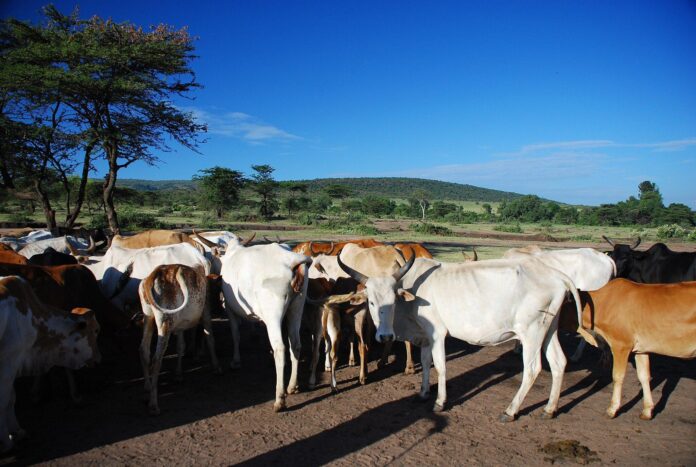Maasai families in Kenya and Tanzania whose heirlooms are on display in the Pitt Rivers Museum in Oxford have received a “symbolic gift of cows” as part of a project aimed at building equitable relations with indigenous peoples whose heritage is represented in the museum’s collection.
According to the Kenyan newspaper The Nation, 98 cows were given to members of the Sululu and Mpaima families at a ceremony at the weekend in Loita, southwest of Nairobi near the Tanzanian border. The Pitt Rivers Museum said six ceremonies took place between 26 June and 5 July. According to the K24tv website, the Moseka family in northern Tanzania and the Sayialel family in Kenya have also received gifts of cows.
The Maasai human rights activist Samwel Nangiria visited the Pitt Rivers Museum in 2017 and discovered culturally sensitive family heirlooms in the collection, the project’s website says. In a statement issued after that visit, Maasai leaders said they were “annoyed, annoyed, annoyed” about the objects’ presence in the museum.

The five culturally sensitive objects Image: © Pitt Rivers Museum
The five objects in question are a hereditary necklace and a hereditary bracelet passed from father to son, an earring and a head ornament worn by young women after circumcision, and a neck ornament worn by married women. These may never be borrowed, sold or given away, according to Maasai custom. All five were acquired by Alfred Claud Hollis, a British administrator and writer who spent much of his career in East Africa.
“These objects have never been publicly displayed or studied, possibly due to limited historical documentation and lack of research interest in Maasai collections,” the Pitt Rivers Museum says on its website.
“Their absence from a family is believed to incur bad luck so the objects’ presence in the museum continues to cause harm to descendants,” the Pitt Rivers said. “The museum has subsequently taken guidance from Maasai traditional elders and religious leaders to find ways forward with regard to the care of the objects.”
The 2017 visit led to the creation of the Maasai Living Cultures Project, a collaboration between the Pitt Rivers Museum, Maasai community leaders and InsightShare, an Oxford-based organisation which supports indigenous peoples to protect their territories, languages and cultures using participatory video. The cows were funded by the Staples Trust, which finances the project.
“We hope this process of redress, which has been led by the Maasai over the past six years, makes a meaningful impact on Maasai families who are the descendants of the people whose objects were taken during periods of war and colonial oppression,” says Laura Van Broekhoven, the director of the Pitt Rivers.
The Pitt Rivers holds 95,327 objects from Africa, including 9,443 from Kenya and 2,794 from Tanzania, according to its website. Of these,188 are attributed to the Maasai. Since its inception, the Maasai Living Cultures Project has expanded to include the Horniman Museum in London, and the Museum of Archaeology and Anthropology in Cambridge.
On its website, the Pitt Rivers says no claim has been submitted for the objects, but if that were to happen “we would follow the established university procedures.”

























